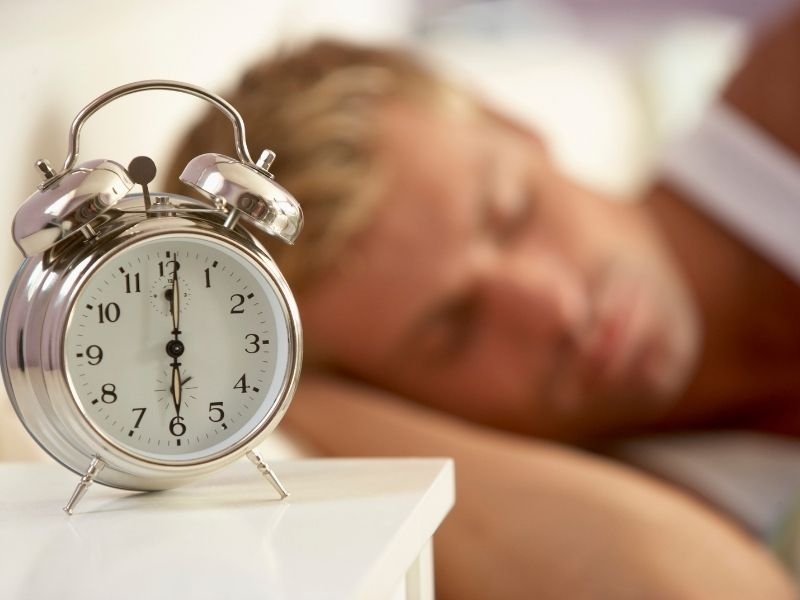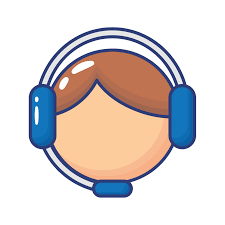Sleep is a biological necessity, just like food and water. While you sleep, your body is busy fighting off viruses and other pathogens, cleaning the brain of waste, looking for and getting rid of cancer cells, repairing damaged tissues, and making new memories
. Getting enough sleep can help your health, your mood, and your ability to think clearly. It is important for our hearts and other organs to work well.
How Long Should I Sleep?
The American Academy of Sleep Medicine says the following about how much sleep you should get each night:
Four-month-old to one-year-old babies should sleep 12 to 16 hours a day (including naps).
Children ages 1 to 2 should sleep between 11 and 14 hours a day (including naps).
Children ages 3 to 5 should sleep between 10 and 13 hours a day (including naps).
Children ages 6 to 12 should sleep between 9 and 12 hours per day.
Teenagers ages 13 to 18 should sleep between 8 and 10 hours each day.
Adults should get at least 7 hours of sleep each night.
Different people have different sleep needs. If you're worried about getting too much or too little sleep, talk to your doctor.
Why can't I get to sleep?
There are a lot of health problems that can cause or make it harder to sleep. Breathing problems like sleep apnea are some of the most common. Sleep apnea can cause serious problems like heart failure or even a stroke if it is not treated. Talk to your doctor if you have trouble breathing while you sleep.
But many of the things that keep people from getting a good night's sleep are environmental or behavioral. This means that they can be fixed by changing the sleep environment, habits, activities, bed, or sleep accessories.
How do I make my room a better place to sleep?
It's important where you sleep. Have a good place to sleep that is dark, quiet, cool, and cozy. To make a good place to sleep,
Give yourself enough time to sleep.
Give yourself enough time in bed to get the sleep you need to feel rested when you wake up.
+Sleep in the dark and in a cool place.
If you can, turn off all the lights in the room and make the sleeping area very dark (especially blue and white lights, such as clocks or watches with white-or blue-lit dials, computers, cell phones, and televisions).
Cover the windows with room-darkening shades or heavy, lined drapes.
Block any light from coming into the room.
If it's hard to avoid lights from cars or street lamps, wear an eye mask.
Have a cool room. Most people sleep well in a room that is 65 to 68 degrees Fahrenheit, but you may need to try different temperatures.
What are some good ways to go to sleep?
Good sleep habits (sometimes referred to as "sleep hygiene") can help you get a good night's sleep. Here are some things you can do to improve the health of your sleep:
Consistent sleep times improve sleep.
Every day, even days off, go to bed and wake up around the same time.
You should go to bed early enough that you don't need an alarm to wake up.
Plus, exercise improves sleep.
Move around a bit during the day.
Even 10 minutes of walking can help you sleep better, and more is better.
Plan to finish working out at least three hours before going to bed.
Also, having a lot of light during the day helps.
Getting bright light during the day strengthens the biological rhythms that keep you awake at work and help you sleep at night. Try to spend at least 30 minutes outside in the sun during the day.
Getting bright light first thing in the morning is especially helpful.
Even being outside on a cloudy day is better than only being inside where the light is dim.
If you can't go outside, hang out in a well-lit room inside.
Only two things should go in your bedroom.
Use your bedroom only for sleep and intimacy. If you can, don't watch TV or use digital devices in bed. This will train your brain to relax when you go there.
About 1.5 hours before bedtime, get ready for a good night's sleep.
Do things that make you feel good. 1.5 hours before bedtime to help your body make the change from being awake to sleeping.
Don't look at your computer or phone screen or do anything exciting like watch an action movie or read a sad news story.
Having a routine before bed, like brushing your teeth and washing your face, will help you calm down.
This is the time to switch to dim lighting.
Try relaxation techniques.
Taking a warm bath 30 minutes to two hours before bed can help you relax and make the most of the changes in body temperature that help you sleep.
Check what you eat.
Don't eat anything heavy or spicy three hours before you go to bed.
Limit liquids a few hours before bed so you don't have to get up to use the bathroom.
Some prescription and over-the-counter medicines can make it hard to sleep. Talk to the doctor who gave you the medicine if this happens to you.
Don't drink before bed. It might help you fall asleep, but it can also make it hard to stay asleep. If you're going to drink, don't do it too close to bedtime. (Some other drugs used for fun can also make it hard to sleep.)
Stay away from caffeine, chocolate, and nicotine at least five hours before you want to sleep, or longer if you are sensitive to these things. Listen to what your body tells you.
If you find yourself getting tired earlier than usual, go to bed. This will let you sleep longer.
When you feel sleepy, your body is telling you that you need to sleep. Your body might be fighting off an infection or need more sleep to recover from something that happened during the day. Researchers have found that sleep and the immune system work together to fight off viruses and other diseases. After a lot of mental or physical work, your body also needs more sleep. This entry was made public on August 1, 2010.
Additives and things for the bed
Can supplements like magnesium and others help me sleep better?
Many supplements, like magnesium, claim to help people sleep better. There isn't a lot of evidence that magnesium works, but it does seem to help some people. Melatonin, valerian root, chamomile, hops, lavender, skullcap, passionflower, tryptophan, L-theanine, and glycine are some other supplements that can help you sleep.
Some of these are old remedies, and many of them haven't been proven to work. Talk to your health care provider about your health goals before you add any supplements to your diet.
Good food can help the body do everything it does, including sleep. Adding magnesium-rich foods to your diet, like broccoli or squash, or nuts like cashews and almonds, is good for your health, whether or not it helps you sleep better.
What do I need to know about pillows and mattresses?
Use a mattress and pillows that feel good. One-third of your life is spent in bed, so making it more comfortable can help you sleep better. Mattresses don't last forever. If yours creaks, has lumps or a depression where you sleep, or if you wake up stiff, it might be time to get a new one. In the same way, pillows get dust mites and lose their firmness over time, so you should replace them every year to two years.










 And then Add to Home Screen.
And then Add to Home Screen.